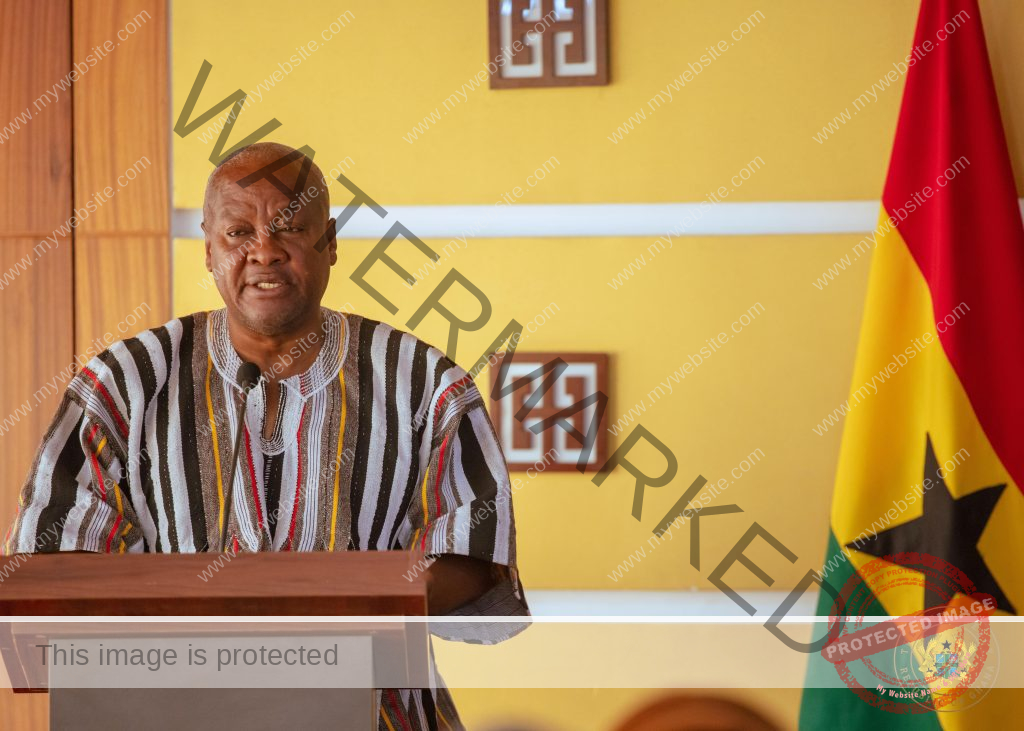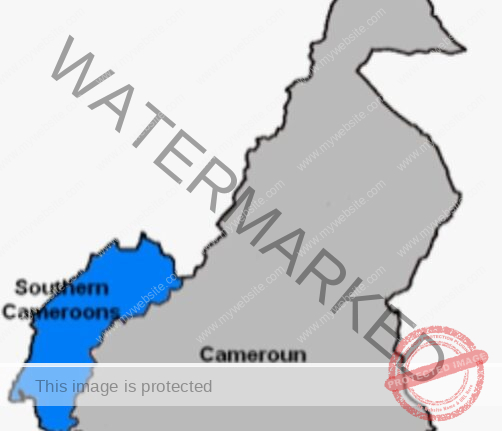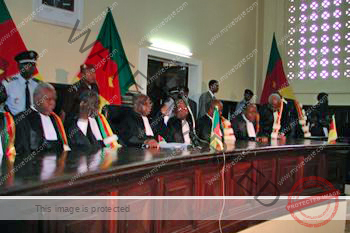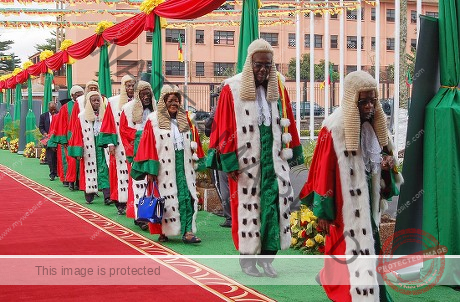Ghana’s President John Dramani Mahama: Is his country’s economic role in the west African sub-region becoming a threat to the west?
By AfrikanChild for the Independentist
There is a quiet but growing storm over Ghana — a storm whose winds reach far beyond its borders.
To some, the country is becoming the crucial link in a chain of sovereign African cooperation. To others, it’s walking into the crosshairs of powerful interests who don’t want to see that chain built at all.
At the heart of this debate is Ghana’s deepening relationship with the Alliance of Sahel States — Burkina Faso, Mali, and Niger. These landlocked nations have turned their backs on French military presence and the comfort of Western alignment. They’re trying to chart a course toward self-reliance, controlling their resources, and securing their borders on their own terms.
Ghana has quietly become their Atlantic gateway. Through the Port of Tema, Burkina Faso now has a secure trade route to the sea, bypassing French-controlled Côte d’Ivoire and the political uncertainty of Togo. On paper, it’s just trade. In practice, it’s a geopolitical earthquake — because it chips away at the traditional chokehold over West Africa’s supply lines.
Echoes of the Past
History has taught Ghana hard lessons about what happens when an African country tries to stand too far outside the influence of former colonial powers.
In the late 1950s and early 1960s, Ghana’s first president, Kwame Nkrumah, dreamt of a united and self-reliant Africa. He built the Akosombo Dam, Ghana Airways, Tema Port, and refused to be dependent on the IMF or Western aid. He courted partnerships with China and the Soviet Union. His vision was bold — and dangerous to those who preferred a compliant Africa.
In February 1966, while Nkrumah was abroad on a peace mission, his government was overthrown in a military coup. Years later, declassified U.S. documents confirmed what many already suspected: the CIA had been monitoring and undermining his Pan-African ambitions, viewing him as a threat to Western interests.
The Ghana that followed was very different. Successive governments, often with military backing, tilted closer to the West. The country’s economy was opened up, and much of Nkrumah’s industrial vision faded.
One of the most damaging policies of the post-Nkrumah era was the 1969 Alien Compliance Order, introduced by Prime Minister Kofi Abrefa Busia. It required all non-Ghanaians without residency permits to leave within a short period. This hit Nigerians, Togolese, and other West Africans hardest. Businesses were sold off for next to nothing. Bank accounts were frozen. Families were uprooted overnight.
Officially, it was about immigration control and job protection. But critics saw it as a deliberate tearing apart of the Pan-African bonds Nkrumah had worked to build. The effects on Ghana’s economy were swift — cocoa production plummeted, transport systems collapsed, and factories shut down. Trust between Ghana and Nigeria was broken for years.
The Present Storm
Fast forward to today, and some observers see worrying signs of an old playbook in motion.
In July 2025, Ukrainian President Volodymyr Zelensky claimed on social media that Ghana had signed a military deal to buy drones and station Ukrainian troops along its northern border with Burkina Faso. Given that Burkina Faso had just cut ties with Ukraine over alleged terrorist support, the claim was explosive. But Ghana denied it, and independent analysts found no evidence of such a deal. Still, the story spread quickly, planting seeds of suspicion between Ghana and the Sahel bloc.
Around the same time, a ten-year-old video resurfaced showing a Nigerian man talking about creating a “Nigerian ethnic kingdom” in Ghana. Suddenly, the hashtag #NigeriaMustGo exploded across Ghanaian social media. Researchers say it bore all the signs of bot-driven amplification, designed to stir hostility between Ghanaians and Nigerians. But whether real or manufactured, the tensions it ignited were real enough.
Then came the tragedy of August 6, 2025. A government helicopter went down, killing Ghana’s Environment Minister, the Army’s Chief of Staff, two regional governors, and other senior officials. They were on their way to a retreat on northern security and economic cooperation — work that directly tied into Ghana’s AES partnerships and crackdowns on illegal mining.
Authorities pointed to bad weather. But the scale of the loss — multiple top-level officials tied to strategic policy — raised questions. Some saw coincidence. Others saw something more deliberate. What’s certain is that Ghana’s leadership suddenly lost several key voices pushing for regional cooperation and economic independence.
A Familiar Playbook?
Those who believe Ghana is being targeted point to what happened in Nigeria before the 2015 elections. At that time, fuel shortages, security crises, and a media onslaught undermined President Goodluck Jonathan. Civil society groups, some with quiet foreign funding, amplified the unrest. In the end, Jonathan was replaced by a leader seen as more aligned with Western interests.
To them, Ghana is now showing similar signs: economic strain, social division, attacks on security credibility, and the building up of an “acceptable” opposition narrative.
Sceptics disagree, saying Ghana’s current challenges — illegal mining, fluctuating commodity prices, regional instability — are mostly domestic and not part of an external plot.
Why Ghana Matters
Whether or not there is a coordinated campaign against Ghana, the country’s position makes it vital to the AES. Lose Ghana, and Burkina Faso’s most reliable sea route disappears. Isolate Ghana, and the AES becomes easier to contain.
For Pan-Africanists, this is exactly why the country must hold steady. For pragmatists, it’s a reminder to balance regional solidarity with strong ties to the wider world.
The Choice Ahead
Ghana has been here before — standing at the edge of a new African possibility while the weight of history presses from behind. The question now is whether it can navigate the turbulence without being pulled back into dependency, or worse, into instability.
If Ghana remains stable while deepening AES cooperation, it could become the bridge between Africa’s inland states and the global economy. If it falters, it may become another cautionary tale of how strategic positioning can turn into strategic vulnerability.
History is watching. So is the rest of Africa.
AfrikanChild





















Leave feedback about this